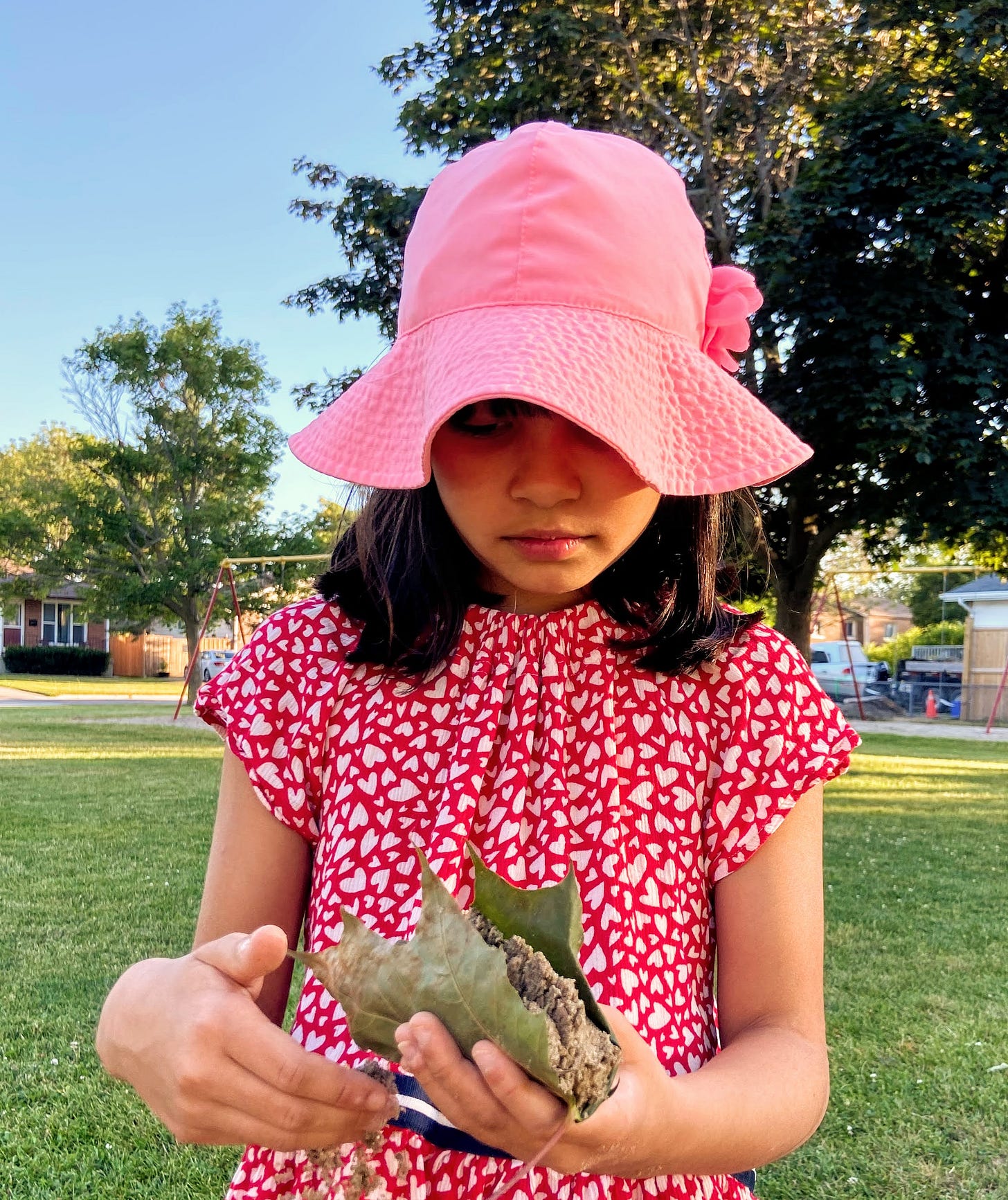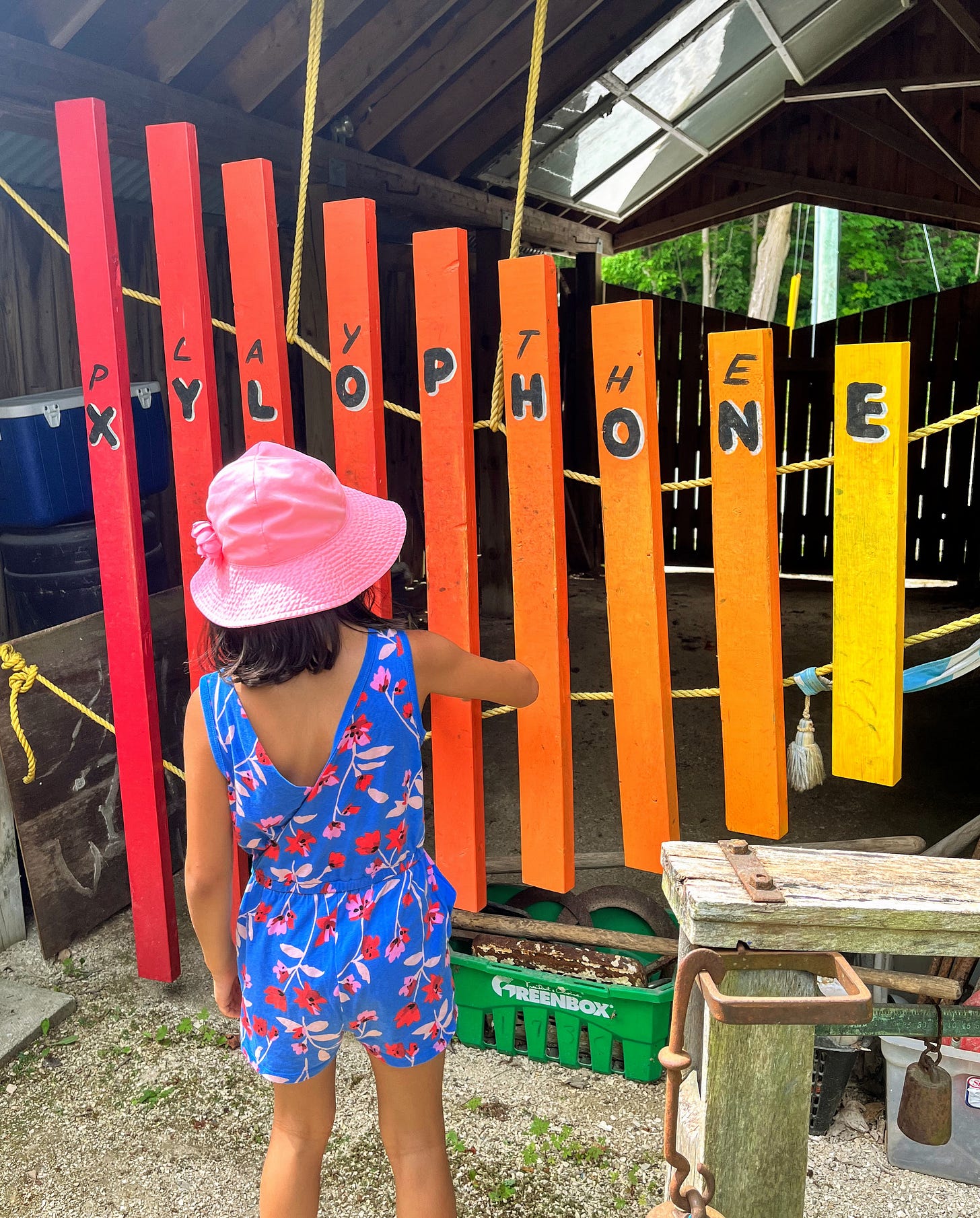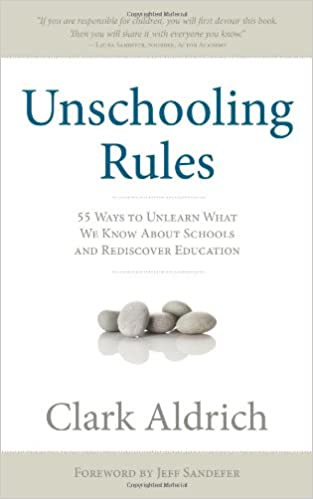What is unschooling, and is it for us?
I first heard the term “unschooling” a few years ago, and really didn’t have an idea of what it was. Honestly, the word made me uncomfortable, conjuring up images of wildness and an overly fluid lifestyle. Even when we started seriously thinking about worldschooling, the adjacent concept of unschooling held no appeal. But I did pick up snippets here and there, when unschooling was mentioned in online circles, that there was more to it than just running around with no schedule or purpose. It appeared to be a fully formed philosophy on learning, not simply defined as “the absence of schooling.”

I’ve finally decided to look into unschooling now. From what I can gather, there is “unschooling” and then there is “radical unschooling,” and what each of these terms means is debated. The latter is closer to the idea I had in my head. It is, essentially, letting children decide everything about everything in their lives, and giving them as much say in the family as adults have. They choose their bedtimes, whether they want to do chores, what they would like to eat and when they would like to eat it.
I admit to doubts about this type of unschooling—it’s too Radical for me! Do children really have the experience and wisdom to choose what’s good for them in the long-term? Aren’t they notoriously bad at this?? I just cannot fathom how it would be a good idea to give the reins over to a kid completely.
What about basic skills like arithmetic? What if the child decides they don’t want to learn any of it and it isn’t important to them? From what I’ve read, a radical unschooler would say that if it does turn out to be necessary to learn for the path they choose, they will decide to learn it then. With basic arithmetic, just about every person will come to a point in daily living—going to the store, for example—when not knowing how to add or multiply will be an obvious disadvantage. At this point, I believe, a radical unschooler would realize the practical necessity of learning some math, and be motivated to do so.
As much as radical unschooling causes me discomfort, I also recognize I’m a product of the traditional education system, and probably can’t see past my own mental blocks. I might need some “deschooling”: the process of unlearning some of the misconceptions we operate under because it’s what we’ve been taught and what we see all around us. Do we do education our way because it’s the best way, or because it’s the only way we know?
The original definition of “unschooling” is easier for me to wrap my head around than radical unschooling. Coined by the American educator John Holt in the 1970s, it means learning through natural life experiences and the world around us, rather than through a set curriculum and textbooks. Lessons could come from travel, household chores, playing outdoors, going to museums…anything the child encounters, really. Many worldschoolers unschool as they travel. Adults actively guide learners—such as helping them find resources—but learners lead with their natural interests.
Some of the advantages unschoolers claim of their method, I could intuit, such as nurturing a stronger sense of responsibility and agency in one’s own learning and growth; some were less obvious to me, such as the time and opportunity to interact with their greater community more—including people of different ages—and the ability to pick one’s mentors and instructors rather than having them decided by a school.
(I think many of us have had the experience of going through years of schooling and mastering how to “school,” only to be tripped up by the very different real and working worlds…or even by the basic acts of living on our own. School prepares us poorly for life in many ways.)
My interest in alternative learning methods stems in part from growing up in traditional school systems—including a traditional Asian school system—and a culture in which adults were clearly the people with power, while students were obedient receptacles of knowledge. The older I get, the more I realize not only how little adults know, but how much children actually understand already. I didn’t need to wait to be 30 to trust my own instincts and knowledge. I wish I had believed that more as a child.
So now I’m trying to fight through my discomfort and keep in mind my limited viewpoint stemming from traditional school experiences, and how my experiences haven’t always served me well.
Nevertheless, I do wonder…
…what about the child who doesn’t have any passions yet? What if they aren’t self-motivated to learn?
My guess is that a big percentage of young children—probably the majority—have not cultivated any passions yet. Beanie hasn’t. She can sit still to read or daydream for hours, but otherwise there isn’t any activity she’ll get so absorbed in that she’s in flow.
With kids like her, does unschooling work? What if “learner-led” means “learner doesn’t do anything productive all day”?
Unschooling parents would probably say that I should reframe my question. It’s not that the child cannot focus and be curious at all—they just might be putting their energy into activities we don’t feel align with the “necessary” things to learn, such as video games or playing pretend. We have to think through our own motivations of why we want them to learn what we do. When we label a child as “not self-driven to learn,” we are not trusting the innate curiosity that is built into humans, that we see in babies as they start to look around and then explore their surroundings. If we allow children to lead with their curiosity, they will develop the passion to learn.
This makes sense to me. I think unschoolers have a point when they say the structure of traditional school often overrides our natural desire to learn, by putting artificial motivations like grades and awards in the equation.
Finding your tribe
Thinking back to the times of my own life when I felt the most excitement and drive about a project or goal, it was when I had a partner in crime or a sounding board. They gave me motivation and spurred accountability when I would have otherwise flagged alone. Finding your tribe is, I think, an underrated component of success, motivation, and developing passions.
When the right people come together, the whole is greater than the sum of its parts. I hope Beanie finds kindred spirits who will help harness her creative energies. I hope she finds not only friends who are into the same things she is, but also those who are generally inquisitive and open to the world, and aren’t complacent about the status quo. I hope we meet more of these people as we move through new communities.
As for unschooling, I feel I’ve only scratched the surface and I have more to learn. In 2023, we may spend some of the year teaching her ourselves, but I don’t know about giving up textbooks and a standard curriculum completely; it still seems challenging and a bit extreme. It’s hard to try something so different, even if I theoretically agree with the philosophy.
I have to remind myself that children are resilient and adaptable, and trying new ways of doing things is healthy. It’s OK if it doesn’t work out—we are in this experiment together, and we can pick ourselves up and keep experimenting.
Pretty Good Things
Unschooling Rules
Jana Pappas, director and co-founder of Acton Academy Concord, recommends a book called Unschooling Rules by Clark Aldrich. Here’s a short excerpt:
Sitting through a classroom lecture is painful for most people most of the time. We all know this, yet so many deny it or view it as a personal failing. When human beings are required to sit and listen, we squirm. We watch the clock tick slowly. Minutes can seem like hours. We escape into our own head. We invent activities to either occupy or numb ourselves. The most talented classroom sitters create micro-tasks to busy their hands and the other 80 percent of their minds. The pain is cumulative. The first hour of lecture in a day is bearable. The second is hard. The third is white-hot excruciating. The highly engaging presenter who periodically arises in the classroom does little to soften the physiological impact of the subsequent dull one. This reality goes beyond a power thing, or even an interest thing, or a quality of the teacher thing. Even when corporate leaders and heads of state attend highly relevant daylong events at which they listen to the highest-tier speakers, they are suppressing their own body ticks 90 minutes into the lecture. The lunch break becomes an oasis. Students are psychologically ravished daily by this onslaught. And it is costly on all involved—teachers, administrators, parents, siblings. Although this recommendation subverts most industrial business and logistics models, 2 non-adjacent hours of lecture a day should be the greatest number for any institution or program. And the most successful will have even less than that. This requires an alternative approach.
“Use by” has no meaning!
Here’s something unrelated to unschooling, but perhaps you’ll find useful.
Did you know the expiration labels on foods are largely nonsense? I knew that many are excessively conservative, but I’m surprised that most are based on no data whatsoever. There is only one exception:
Infant formula is the only food product with a “use by” date that is both government regulated and scientifically determined. It is routinely lab tested for contamination. But infant formula also undergoes nutrition tests to determine how long it take the nutrients - particularly protein – to break down. To prevent malnutrition in babies, the “use by” date on baby formula indicates when it’s no longer nutritious.
If you’d rather have a listen than a read, here is a Planet Money podcast episode on the same topic, called “Best by, sell by, use by.”




